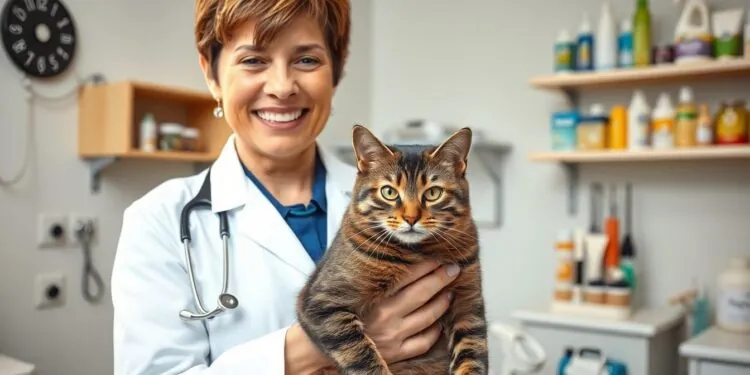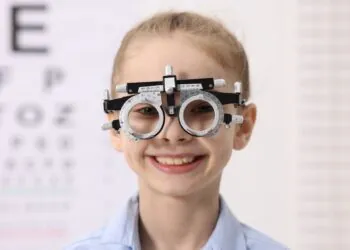Cats may have nine lives, but that doesn’t mean they should test fate! Preventive care is the ultimate secret weapon for every feline friend, keeping them purring with joy and far away from the vet’s dreaded waiting room. Imagine a world where your cat struts around like the royalty they believe they are, free from pesky health issues.
Importance Of Preventive Care For Cats
Preventive care plays a vital role in keeping cats healthy and happy. Regular veterinary check-ups enable early detection of potential health issues, allowing for prompt treatment. Keeping vaccinations up to date helps protect against diseases that can be severe or even fatal.
Providing a balanced diet and routine exercise promotes proper weight management, reducing the risk of obesity-related conditions. Dental care is equally important; brushing teeth and providing dental treats can prevent periodontal disease, which affects many cats as they age.
Establishing a consistent flea and tick prevention routine protects cats from parasites, which can cause discomfort and serious health problems. Regular grooming removes loose fur and reduces the risk of skin infections, further contributing to overall well-being.
Monitoring behavior changes can signal underlying health concerns. Increased thirst, lethargy, or changes in appetite warrant immediate veterinary attention. By observing these signs, cat owners can ensure their pets receive necessary care before minor issues escalate.
Creating a safe environment limits exposure to hazards. Providing opportunities for mental stimulation and enrichment helps reduce stress and anxiety, enhancing a cat’s quality of life. Preventive care fosters a happy, confident cat who avoids the stress of emergencies and veterinary visits.
Investing in preventive care saves money in the long run by reducing the need for expensive treatments and procedures associated with untreated conditions. By focusing on preventive measures, cat owners contribute to their pet’s longevity and overall health.
Key Components Of Preventive Care
Preventive care encompasses several essential practices that contribute significantly to a cat’s overall health and longevity. Each component plays a vital role in keeping them healthy and happy.
Regular Veterinary Check-Ups
Regular veterinary check-ups are fundamental for identifying health issues before they escalate. During these visits, veterinarians perform comprehensive physical exams, allowing early detection of conditions like dental disease or heart murmurs. They also assess vaccination status and recommend necessary boosters. Scheduling annual appointments for younger cats and bi-annual visits for seniors enhances the chances of maintaining optimal health. Vets can provide guidance on nutrition and behavior during check-ups, ensuring a well-rounded approach to feline wellness.
Vaccinations
Vaccinations play a significant role in protecting cats from serious diseases. Core vaccines, such as those for feline viral rhinotracheitis, calicivirus, and panleukopenia, should be administered according to veterinarian recommendations. These vaccines offer critical immunity, reducing the likelihood of contracting infectious illnesses. Additionally, non-core vaccines, like those for feline leukemia and rabies, may be suggested based on a cat’s lifestyle and exposure risks. Keeping vaccination records updated is essential for compliance, especially for traveling or boarding cats.
Parasite Control
Effective parasite control is integral to maintaining a cat’s health. Flea and tick prevention products help minimize the risk of infestations that can lead to severe skin issues or transmit diseases. Regular deworming protects against intestinal parasites, safeguarding a cat’s digestive health. Monthly preventatives ensure that cats remain protected throughout the year. Owners should also monitor their cats for signs of parasites, such as excessive scratching or weight loss, and consult with veterinarians for tailored strategies that suit their pet’s needs.
Nutrition And Diet
Maintaining a balanced diet is vital for a cat’s overall health. Proper nutrition supports immune function, energy levels, and overall well-being.
Essential Nutrients For Cats
Cats require specific nutrients for optimal health. Protein serves as the primary energy source, aiding muscle maintenance and growth. Amino acids such as taurine play a crucial role in heart health and vision. Essential fatty acids support skin and coat condition, contributing to a sleek appearance. Cats also need vitamins A, D, E, and B-complex, which promote various bodily functions. Minerals like calcium and phosphorus maintain bone strength and dental health. Choosing high-quality, species-appropriate food ensures a cat receives these essential nutrients.
Importance Of Hydration
Hydration significantly impacts a cat’s health and vitality. Fresh water availability encourages regular drinking, essential for kidney function and overall moisture balance. Dry food diets may lead to increased water needs, making hydration even more crucial. Cats often derive moisture from wet food, which can help prevent urinary tract issues. Keeping water bowls clean and filled promotes fluid intake. Observing a cat’s drinking habits can aid in detecting potential health concerns such as dehydration or kidney disease.
Behavioral Health
Behavioral health plays a crucial role in a cat’s overall well-being. Understanding the importance of mental and emotional health can lead to happier, healthier feline companions.
Enrichment And Stimulation
Engaging a cat through enrichment and stimulation improves behavioral health. Providing toys that encourage natural hunting instincts fosters mental engagement. Scratching posts and climbing structures offer opportunities for physical exercise and exploration. Interactive playtime boosts a cat’s mood and strengthens the bond between pet and owner. Regularly changing toys keeps the environment exciting and reduces boredom. Introducing puzzle feeders stimulates problem-solving skills and extends meal times. Each of these activities contributes significantly to a cat’s mental well-being and reduces the chance of destructive behaviors.
Stress Management Techniques
Implementing stress management techniques promotes a calm environment for cats. Creating quiet spaces with cozy beds allows for resting and retreating when they feel overwhelmed. Using pheromone diffusers can help create a sense of security and comfort. Gradually introducing new pets or changes within the home reduces anxiety related to transitions. Consistent routines reassure cats, making them feel safe in their surroundings. Positive reinforcement during training encourages desirable behavior while decreasing stress responses. Observing a cat’s body language can reveal signs of discomfort, enabling timely action to alleviate stress.
Grooming And Hygiene
Grooming and hygiene play crucial roles in maintaining a cat’s overall health.
Regular Grooming Practices
Regular grooming practices help keep a cat’s coat healthy and reduce shedding. Brushing removes loose hair and prevents matting, important for both short and long-haired breeds. Most cats benefit from weekly grooming sessions, while long-haired varieties may require daily brushing. Bathing should be infrequent, as too much can strip natural oils. Checking ears weekly prevents wax buildup, and routine nail trimming prevents injuries. Attention to these details minimizes hairballs and skin issues, contributing to a happier cat.
Dental Care For Cats
Dental care for cats significantly impacts overall health. Regular tooth brushing helps prevent periodontal disease, which affects a cat’s comfort and well-being. Using a vet-approved toothpaste and a soft brush makes this process easier. Depending on individual needs, dental chews can reduce plaque buildup. Routine veterinary dental cleanings allow for thorough examinations and maintenance. Observing signs of dental issues, such as bad breath or difficulty eating, ensures timely intervention. Prioritizing oral hygiene promotes not only healthier teeth and gums but a better quality of life.
Conclusion
Preventive care is the cornerstone of a cat’s health and happiness. By prioritizing regular veterinary visits and staying up-to-date on vaccinations, owners can catch potential health issues early. A balanced diet, routine exercise, and good dental hygiene further enhance a cat’s quality of life.
Incorporating flea and tick prevention and engaging in regular grooming practices ensures that cats remain comfortable and healthy. Additionally, providing mental stimulation and a stress-free environment contributes to their overall well-being.
Investing time and resources in preventive care not only fosters a joyful and confident feline companion but also reduces the likelihood of costly medical interventions down the line. A proactive approach to a cat’s health pays off in numerous ways, ensuring they lead a long and fulfilling life.














Discussion about this post